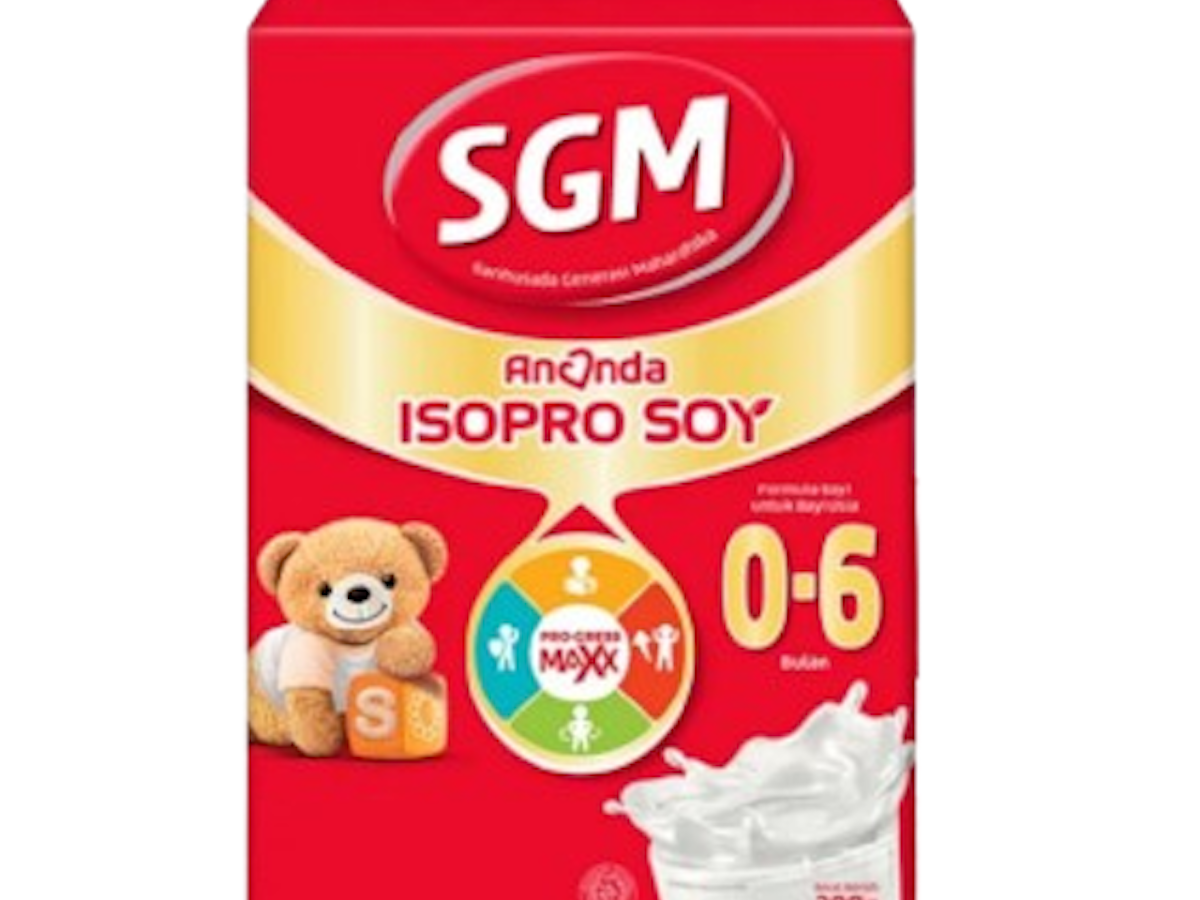Soy-based formula is often chosen by parents whose babies cannot tolerate cow’s milk or have special health needs. Conditions like lactose intolerance, cow’s milk allergy, or certain digestive issues can make switching to soy formula important for your baby’s comfort and development. In response, nutritionists and pediatricians increasingly recommend soy-based options that are formulated for infants aged 0-6 months and 6-12 months.
Choosing the right soy formula requires attention to ingredients, nutrition profiles, and certification from health authorities. Credible sources, including insights from nutritionist Dr. Diana Suganda and pediatrician Dr. Maria Chrismayani Hindom, highlight the importance of checking for complete nutrients and the right protein source in your baby’s formula. Many popular Indonesian brands such as SGM, Morinaga Chil Mil, and Bebelove have developed high-quality soy formulas that cater to these needs and observe safety standards.
Key Criteria When Choosing a Soy Formula for Babies
Look for formulas labeled specifically for infant use and certified by the relevant national health authorities. Nutrition experts stress the need to verify whether the formula provides a complete balance of protein, fat, and carbohydrates suitable for your baby’s growth. Avoid products with too much sugar or artificial additives. Check if the product has added essential fats, vitamins, and minerals such as calcium, vitamin D, and iron.
Another tip is to recognize whether your baby shows any allergic reactions or digestive discomfort after switching to soy formula. Some infants with cow’s milk allergy may also react to soy protein. Continuous monitoring and consultation with a doctor remain crucial during feeding transitions.
Six Best Soy Formulas for Babies According to Nutritionists
Here’s a list of six recommended soy milk formulas, selected with guidance from expert nutritionists and trending sales data from online marketplaces. The options serve infants both in the 0-6 month and 6-12 month age groups.
-
SGM Eksplor Soya
- SGM offers a widely trusted soy-based formula suitable for infants highly sensitive to dairy. The product is enriched with important nutrients such as iron, vitamin D, and omega-3 and omega-6 fatty acids. Its lactose-free content makes it ideal for babies with lactose intolerance. SGM’s soy protein also provides essential building blocks for growth and cognitive development.
-
Morinaga Chil Kid Soya
- Morinaga Chil Kid Soya is crafted for optimal digestion and reduced risk of allergies. It is fortified with Alpha Lactalbumin, choline, and taurine for brain development support. This formula does not contain artificial sweeteners or preservatives. Pediatricians often recommend this product for children with proven cow’s milk allergies.
-
Bebelove Soya
- Bebelove Soya presents a soy formula that prioritizes digestive comfort. It contains FOS (Fructooligosaccharide) to support gut health and regular bowel movement, reducing risk of constipation in sensitive infants. Bebelove’s product is often ranked among the top sellers in online baby food stores, indicating high consumer trust.
-
Isomil Advance Soya
- Isomil Advance Soya has a unique blend of nucleotides and essential fatty acids, tailored for brain and visual development. This product is a top choice for infants who don’t tolerate cow’s milk well and is recommended by healthcare professionals for its hypoallergenic properties. The formula uses soy protein isolate as the main source of high-quality protein.
-
Nesle Nutren Junior Soya
- Nesle Nutren Junior Soya emphasizes balanced nutrition for sensitive infants. It contains high levels of calcium and vitamin D for bone health. This formula undergoes stringent clinical testing and aligns with global pediatric nutritional guidelines.
- Sustagen Junior Soya
- Sustagen Junior Soya offers a formula with added vitamins, prebiotics, and DHA to support immune health and brain function. The focus is on easily digestible soy protein and is suitable for children with persistent cow’s milk protein intolerance.
Comparing The Best Soy Formula Options
Here is a simple comparison table for easy reference:
| Brand | Key Features | Suitable Age | Highlights |
|---|---|---|---|
| SGM Eksplor Soya | Full nutrients, lactose-free | 0-6m, 6-12m | Omega-3, Omega-6 |
| Morinaga Chil Kid Soya | Allergy-friendly, brain nutrients | 6-12m | Alpha Lactalbumin, choline |
| Bebelove Soya | Digestive comfort, prebiotics | 0-12m | FOS for gut health |
| Isomil Advance Soya | Complete, hypoallergenic | 0-12m | Nucleotides, essential fatty acids |
| Nesle Nutren Junior Soya | Calcium/vitamin D focus | 6-12m | Bone health support |
| Sustagen Junior Soya | Immunity, brain nutrition | 1y+ | Prebiotics, DHA |
Frequently Asked Questions About Soy Formula
Many parents ask if soy formula is genuinely safe for babies. The Indonesian Pediatricians Association recommends soy formulas when infants exhibit intolerance to cow’s milk or have galactosemia. These options are also considered for families adhering to vegetarian or vegan dietary patterns. However, you should avoid soy formula for premature infants unless prescribed by your healthcare provider.
Concerns about soy estrogen content have been dispelled by recent studies, as reputable health authorities confirm that the phytoestrogen in soy formula is not harmful to human babies at recommended consumption levels. Always discuss with your child’s pediatrician before switching or starting any new formula.
How to Serve and Store Soy-Based Formula
Prepare soy formula as directed on the packaging to maintain nutritional quality. Use clean water and sterilized equipment to avoid contamination. Unused formula should be refrigerated and discarded if not used within twenty-four hours. Store unopened tins in a cool, dry place away from direct sunlight.
Parents can now confidently choose from several excellent soy formulas for their infants, knowing these products have been reviewed by experts and are widely trusted by families across Indonesia. Selecting a formula that matches your baby’s specific nutritional needs and following your pediatrician’s guidance ensures the best possible start for your child’s growth and development.
